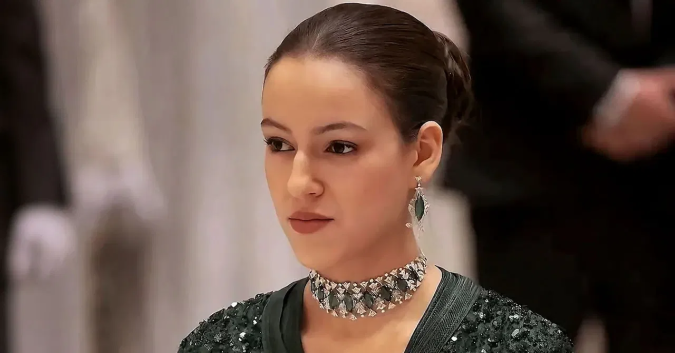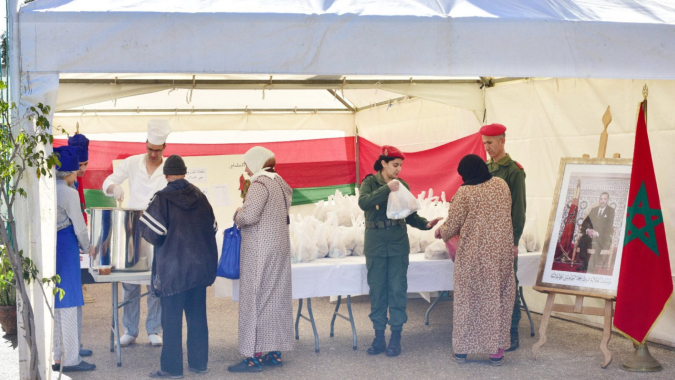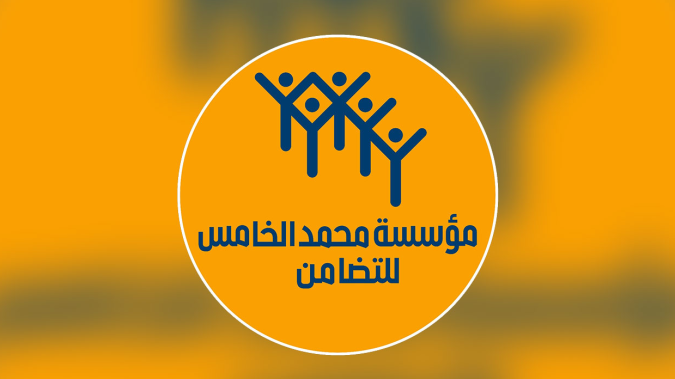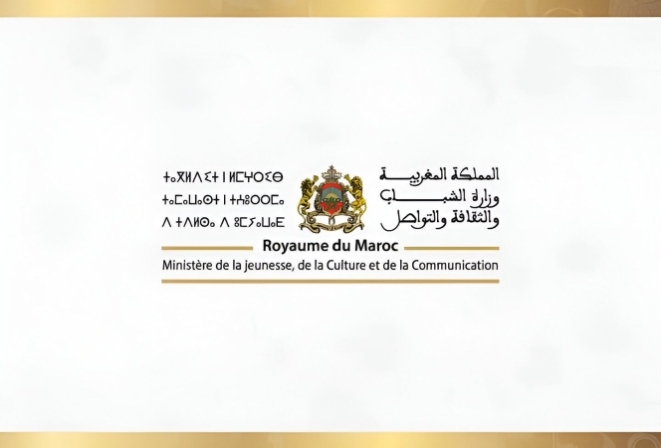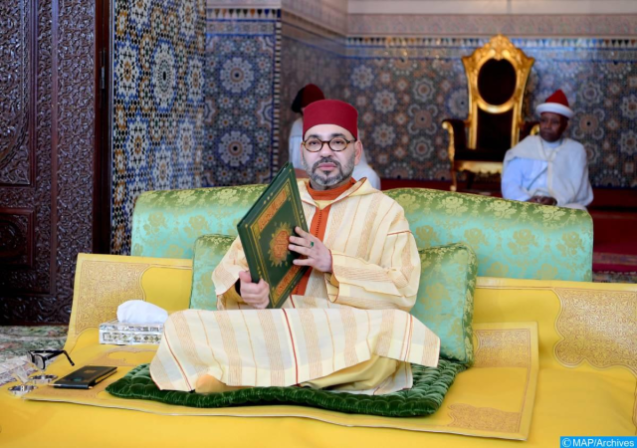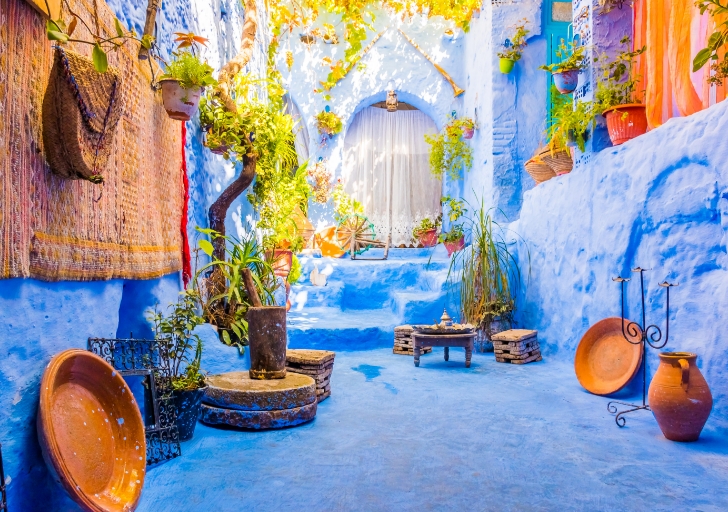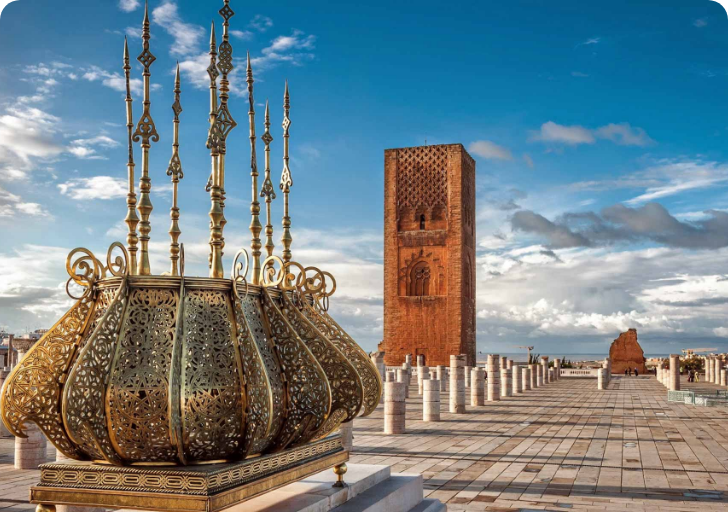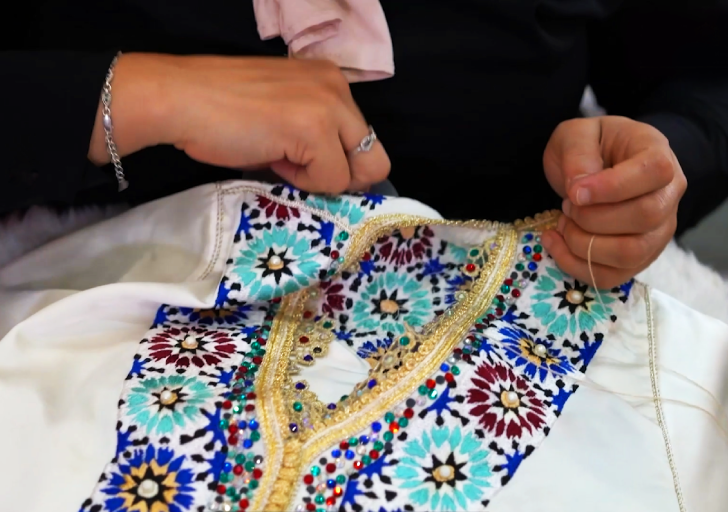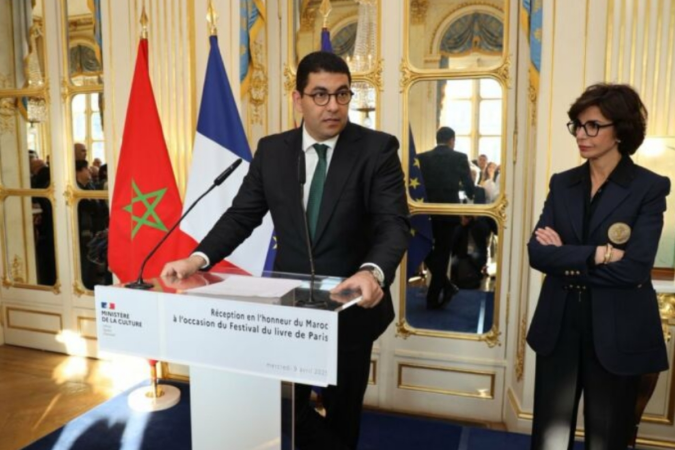
Emotion” and “pride” — such was the spirit in which Morocco’s Minister of Youth, Culture and Communication, Mohamed Mehdi Bensaid, took part on Thursday evening at the Grand Palais in the French capital in the official opening of the 2025 Paris Book Festival, with Morocco as the “guest of honor.”
Speaking alongside, notably, French Minister of Culture Rachida Dati and the organizers of this major literary event, Bensaid expressed his great pride in inaugurating the Kingdom of Morocco’s pavilion as guest of honor at the Book Festival, saying he was pleased to “do so in the framework of the friendship that binds our two nations — a friendship that is regularly renewed, enshrined, and projected with confidence and ambition into the future.”
The centuries-old friendship between France and Morocco “still has the intensity of youthful passions, being founded on the intangible — languages, memories, shared stories,” he noted before an audience of Moroccan and French figures from cultural, media, political and diplomatic spheres, all united in a shared commitment to strengthening ties between the two countries.
“We share our differences and our pluralisms, which express, in different languages, the same will for dialogue. Above all, we share the Francophonie in all its diversity, its richness, its variations,” said the minister, who considers the Paris Book Festival “more than any other place or occasion, must embody this exceptional relationship that builds a bridge between the two shores of the Mediterranean and the two continents, Europe and Africa.”
This year placed under the theme of “the sea,” the Festival is, in his view, “another opportunity to honor this other element we share between France and Morocco: our two nations have the rare privilege of sharing both the Mediterranean and the Atlantic.”
“The Mediterranean — cradle of our origins, our roots, and our myths — and the Atlantic — horizon of our aspirations, our utopias, our future, which our two countries precisely wish to build together within the framework of a broad, ambitious, and sustainable vision,” he said.
Bensaid emphasized in this regard that Morocco, under the leadership of His Majesty King Mohammed VI, “has committed itself to a resilient and inclusive emergence, the key to which is culture,” stemming from the conviction that “more than natural resources or financial flows, it is skills, imagination, the uninterrupted dialogue of memories and stories, that build civilizations.”
He added that “Morocco, firmly anchored in its African environment, and France, strong in its culture, its language, its cultural know-how, can together build a new Euro-African utopia — a North-South corridor of prosperity, rooted in culture and in cultural and creative industries.”
“At a time of robotization and AI, culture — which is the essence of humanity — once again becomes the only source of productivity and wealth that is irreplaceable. And culture is the book,” said the minister, who considers that cultural and creative industries (CCI) — cinema, video games, music, theater, design, or visual arts — by pursuing the very essence of the arts, which is to tell and retell stories, “will always find in the book the central hearth from which all creativity radiates.”
Bensaid took the opportunity to salute in particular the publishers, printers, translators, booksellers — the thousand and one professions that “create the daily miracle that is the book, and which we wish, more than ever, to place at the heart of our societies, our public spaces, and why not, at the heart of a future geopolitics — humanistic and peaceful.”
For her part, Rachida Dati praised the Paris Book Festival’s choice to welcome as guest of honor a country “dear” to France with which “our ties are rich”: Morocco, noting that this year marks the beginning of “a renewed ambition” for this major literary gathering.
“This ambition is to transform the Book Fair into a true Book Festival. To make it a celebration both for professionals and for the public, which comes in great numbers each year — and increasingly young,” said Dati.
Convinced that “in these uncertain times we are experiencing, culture and reading are precious tools in service of our relations with foreign countries,” the minister affirmed that these ties “bring us closer more than they divide us. They offer us the possibility to understand each other and therefore to respect one another.”
For his part, Vincent Montagne, president of the Syndicat national de l’édition (SNE) and of the Paris Book Festival, said he was very honored by the participation “of our Moroccan friends,” guests of honor at this edition, to celebrate books and literature, which forge connections and promote dialogue.
Morocco and France, he said, share “a rich history” and “have for centuries shared a love of poetry, literature, and travel.”
He further recalled that “no fewer than four Moroccan authors have received the most prestigious French literary award, the Prix Goncourt,” namely “Tahar Ben Jelloun, Leïla Slimani, but also Fouad Laroui, winner of the Goncourt for Short Stories, and the great poet Abdellatif Laâbi, honored for his entire body of work.”
He also noted that in Morocco, publishers have the unique distinction of publishing in Arabic as well as in French. “Morocco is thus also one of the pillars of the Francophonie, which brings together more than 300 million people around the world,” he said, emphasizing that “this common language invites us to share and to travel.”
A similar sentiment was shared by Pierre-Yves Bérenguer, general director of the Festival, who also welcomed the “fruitful” collaboration with Morocco as part of this edition.
“We are very honored to welcome its vibrant literary creation, its talented authors and writers, its publishing professionals and, more broadly, the richness of its culture through a program that echoes the transdisciplinary approach initiated this year by offering you this celebration of the book in all its forms,” he told the audience.
Praising “reading as a form of friendship,” Valérie Pécresse, president of the Île-de-France region, host of the event, stressed that it was only natural to celebrate literature in order to honor “the deep friendship” that binds France and Morocco — two countries now connected by bridges.
“And these bridges are our books, our authors, our letters, and also our political men and women,” she said.
It is a sea that connects France and Morocco, she continued, adding that it is also “a privilege to have seen works born on its shores that are so impactful to our literary heritage.”
She concluded that this festival “is therefore a living celebration of reading — at a time when reading remains a cornerstone of culture, citizenship, and social connection. And it is a cornerstone that we must strengthen at all costs.”
The ceremony concluded in the presence, notably, of Morocco’s ambassador to France, Samira Sitail; the Kingdom’s permanent representative to UNESCO, Ambassador Samir Addahre; and Christian Cambon, president of the France-Morocco Friendship Group in the Senate. All guests were then invited to visit the Moroccan Pavilion, inaugurated immediately afterward.
